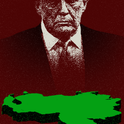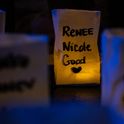The UK is currently “guest of honour” at the Cairo international book fair this year, so I’d expected the press corps to be out in some kind of force. In fact, as far as the British fourth estate is concerned, it seems to be pretty much me, courtesy of the flawless hospitality of the British Council. There are, however, an awful lot of other people here. Cairo may not have the heft in the trade of the big three book fairs – London, Frankfurt and Bologna – but it is a massive public event. When I arrived, yesterday, around half an hour before it opened, there were people literally beating at the doors: an eager mob of bibliophiles rocking the wrought-iron gates backwards and forwards in their excitement at the inexpensive Arabic-language riches lying within. They’re expecting around two million visitors here during the course of the fortnight, which is quite something in a country where adult literacy is less than 60 per cent.
Then again, this is very much an expanding market. Along with Lebanon and the Emirates, Cairo is one of the crucial portals for exchange between English and Arabic literary cultures, as well as a cosmopolitan, artistically confident place in its own right. Despite big problems with piracy, the market for English books translated into Arabic is growing at around 10 per cent a year, while several recent initiatives have put some serious money and expertise behind the project of exchange. A lot of fuss was made about the founding of Kalima last year; a well-funded initiative devoted to bringing quality foreign books into Arabic. The consensus here, though, seems to be that their walk hasn’t proved quite as impressive as their talk, and the real buzz surrounds a number of other, more pragmatic publishing ventures.
Most of the events I've attended thus far have had a civilised, coffee-shop atmosphere, but with an extreme mix of attendees, in terms of sex, age and nationality. Some of the best questions yesterday came from several women clad in full niqabs, who offered confident queries in lightly-accented English during a panel discussion on translation: what is the role of cinema in perpetuating Orientalist mis-readings of the Arab world? Is misinterpretation inevitable in translation between reading cultures largely ignorant of one another? “You see,” the author Adhaf Soueif (perhaps best known for her 1999 novel The Map of Love ) told me later, “these women are not cowed, they are asking questions, they are taking part in intellectual life.” Would they still be participating in a discussion like this if we were, say, in Saudi Arabia? “Yes they would, except that they’d be asking via a television screen from a different room.”
Adhaf is one of the two authors I’ve interviewed so far, the other being Ben Okri (winner of the 1991 Booker prize for The Famished Road), who has also been speaking about translation and the ways in which literature draws inspiration from other cultures. Both he and Adhaf know more about this than most, having grown up linguistically displaced from their countries of birth: Adhaf was born in Egypt but educated with English as her "literary language" at her schools in Egypt and England; Ben is Nigerian, but spent his early childhood in London, and was educated within the British literary tradition even after he returned to Nigeria at the age of seven.
Reading Jane Austen in Lagos was, Ben recalled, a bizarre imaginative experience: trying to conjure this strange other world of tea, snow and bonnets, of things he had never seen. Yet it was not a legacy or an education he resented; rather, he saw it as a kind of extreme training for the imagination, an emblem of the mental transformations inherent in any act of reading. Of everyone I met, he was also the most radical in his claims for the necessity not just of translation but of mutual inspiration between cultures: "A literature belongs to a people; but, more importantly, to the world." There was too much rigidity, he thought, in current notions of national literatures. This was something Ahday more cautiously echoed, citing the ways in which lazy and inaccurate depictions of a foreign culture (Robert Stone's Damascus Gate was one example) become extremely influential because they are convenient reinforcements of existing assumptions; such books can actually damage inter-cultural communication and engagement. Ben, in response, took the example of Conrad's Heart of Darkness: a hugely problematic book for African authors in its mixing of literary brilliance and the worst kind of colonial assumptions. In the end, he argued, such writing was better done than left undone, because of both its cumulative enabling effect within a literature and language, and because setting down even the most morally objectionable of assumptions opens them to scrutiny. Neither readers nor literature, in other words, are passive; and while the best writing, like Conrad's, has artistic greatness despite its limitations, the worst is still an attempt worth making, and learning from.
Everyone was agreed, anyway, that - as Ahday put it - "the richer a culture is, the more porous its boundaries"; and that there was an insidious insularity to much of British literary culture, and its tendency to take refuge in false polarities and generic short-cuts. Names like "Martin Amis" were then mentioned, and it turned out that Ahday had been invited - and had refused - to speak alongside him at the "terrorism and literature" debate I attended in Manchester way back in 2007, and wrote about on this blog. Marina Warner, also speaking at the festival, delivered a blisteringly concise broadside along similar lines against Ian McEwan's Saturday ("a disgraceful book, a vain book; we've lost a lot of our intellectuals to the wrong side").
But this is getting onto topics for another day and another blog. Which, time and internet access permitting, I'll hope to post tomorrow.
Live from the Cairo book fair
January 24, 2009












